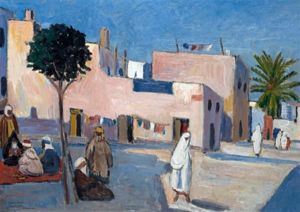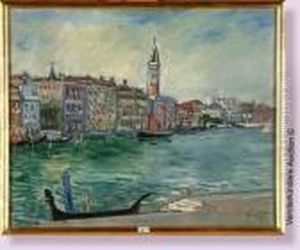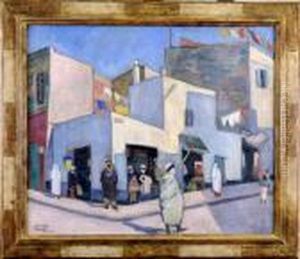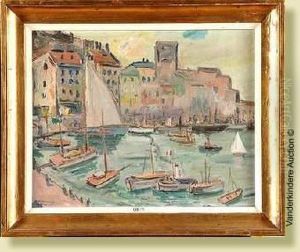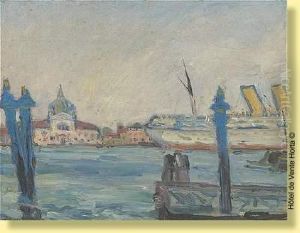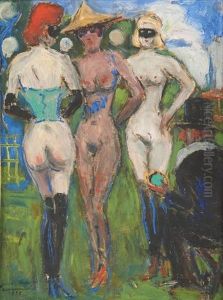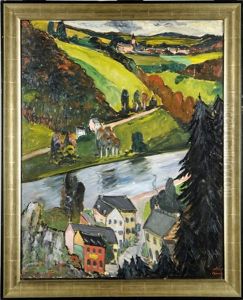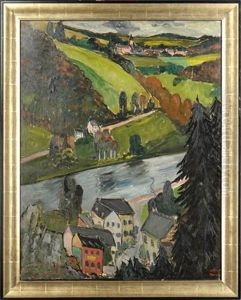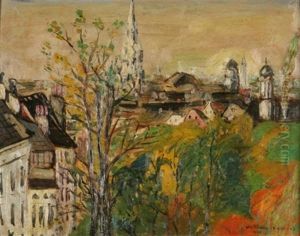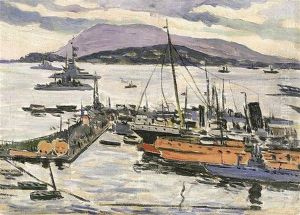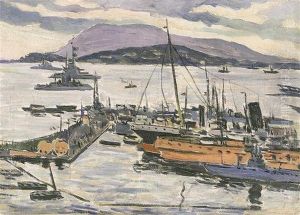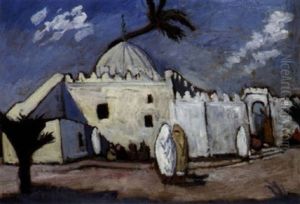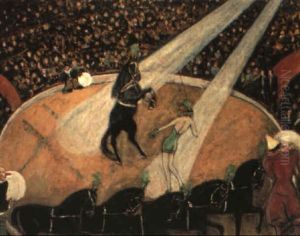Jules Marie Canneel Paintings
Jules Marie Canneel was a Belgian painter, born in the year 1881 in Ghent, Belgium. His work is often associated with the Flemish Expressionism movement, a regional variant of the broader Expressionist movement that swept through Europe in the early 20th century. Canneel's artistic journey was deeply influenced by the socio-political climate of his times, including the impact of World War I and the interwar period on Belgian society and culture.
Canneel's education and artistic training took place at the Royal Academy of Fine Arts in Ghent, where he was immersed in the academic traditions of painting while also being exposed to the emerging trends of modernist art. His early work reflected a blend of these influences, combining traditional techniques with a more modernist sensibility in terms of color, form, and subject matter.
Throughout his career, Canneel was known for his landscapes, urban scenes, and portraits, often characterized by a vibrant palette and dynamic brushwork. His landscapes, in particular, showcased a deep connection to the Flemish countryside, capturing its unique light and atmosphere with a sense of immediacy and emotional depth. This connection to place was a common thread throughout his work, reflecting a broader trend among Flemish Expressionists to seek a deep engagement with their local environment.
During the interwar period, Canneel, like many of his contemporaries, grappled with the aftermath of World War I, which had a profound effect on Belgian society and culture. This period saw a shift in his work, with a move towards more somber tones and themes reflecting the collective trauma and rebuilding of post-war Belgium. His work from this period captures the mood of the era, with a focus on resilience and recovery.
Canneel was active in the artistic community in Ghent and participated in numerous exhibitions, both nationally and internationally. Despite the acclaim he received during his lifetime, his work has been somewhat overlooked in the broader narrative of European art history. However, recent reevaluations of Flemish Expressionism have led to a renewed interest in Canneel's contributions to the movement.
Jules Marie Canneel passed away in 1957 in Ghent, leaving behind a body of work that continues to be appreciated for its emotional depth and technical mastery. His paintings remain a testament to the Flemish Expressionist movement, capturing the spirit of a region and its people during a tumultuous period in history.
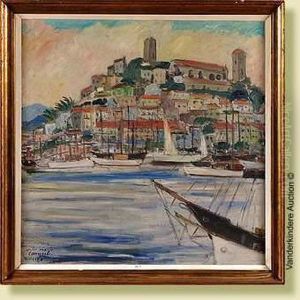
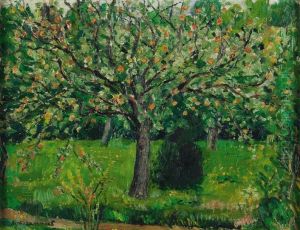
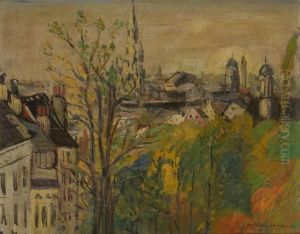
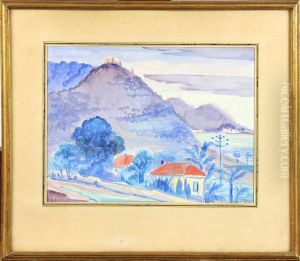
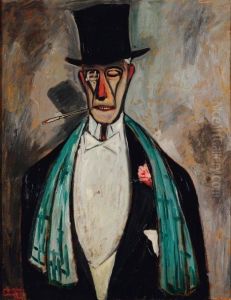
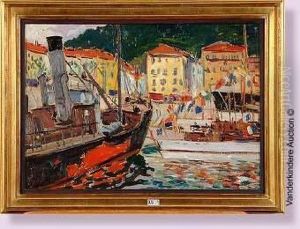
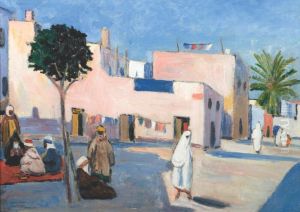
![Sans Titre [soldat Au Repos]](https://www.niceartgallery.com/imgs/458004/s/jules-marie-canneel-sans-titre-soldat-au-repos-1a8711bd.jpg)
